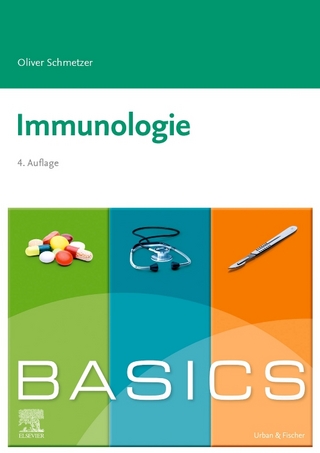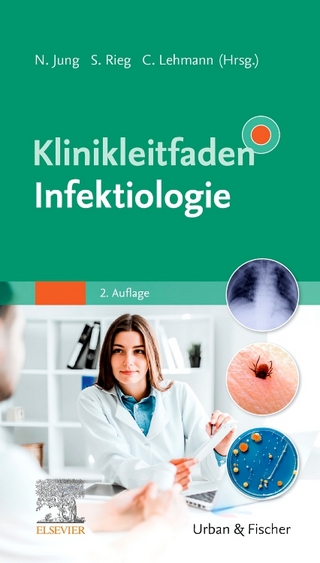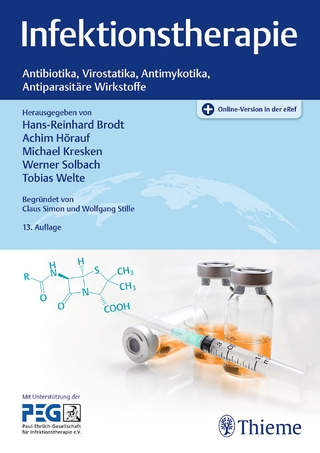
Nanovaccinology as Targeted Therapeutics
Wiley-Scrivener (Verlag)
978-1-119-85734-1 (ISBN)
Nanovaccinology as Targeted Therapeutics explores recent breakthroughs in the exciting new field of micro- and nanofabricated engineered nanomaterials. In addition to spectroscopic characterizations, significant topics for interdisciplinary research, especially in the fields of nanogels, which deal with polymer chemistry, nanotechnology, materials science, pharmaceuticals, and medicine are explored, where their small dimensions prove highly advantageous. Nanovaccinology could potentially revolutionize conventional therapy and diagnostic methods due to its superior effectiveness over its macro-sized counterparts in almost all biomedical areas. Strong interest in this novel class of material has driven many studies to discover biogenic production methods and new areas of potential utilization in this area. Therefore, it is important to keep abreast of the development of these biomedical research aspects highlighted in the 19 chapters of this book written in diverse fields of studies, and their emerging applications utilized in next-generation techniques.
Audience
Biotechnologists, nanotechnologists, materials scientists, biochemists, medical biologists, drug delivery and formulation chemists, virologists and pharmacists.
Kaushik Pal received his PhD from the University of Kalyani. India in 2014. He is now at the University Centre for Research and Development (UCRD), Chandigarh University, Gharuan, Mohali, Punjab. He has published more than 120 research articles in international journals as well as 23 books. He was recently awarded Honoris Causa Doctor of Science (D.Sc.) from Higher National Youth Skills Institute (IKTBN) Sepang, Govt. of Malaysia as well as the Gold Medal awarded by the Prime Minister of Malaysia.
Preface xv
1 Nanotechnology in Vaccine Development and Constraints 1
Tahmina Foyez and Abu Bin Imran
1.1 Introduction 2
1.2 Nanoparticles, an Alternative Approach to Conventional Vaccines 4
1.3 Nanoparticles as Vaccine Delivery Vehicle 5
1.4 Nanotechnology to Tackle the Challenges of Vaccine Delivery 6
1.4.1 Polymeric Nanoparticles 6
1.4.2 Inorganic Nanoparticles 7
1.4.3 Biomolecular Nanoparticles 8
1.4.4 Liposome 9
1.4.5 Virus-Like Particles 9
1.4.6 Micelles 9
1.4.7 Immunostimulating Complexes 10
1.4.8 Self-Assembled Proteins (SAPNs) 10
1.4.9 Emulsions 11
1.5 Constraints and Challenges of Nanovaccines 11
1.6 Concluding Remarks 12
Acknowledgments 13
References 13
2 Nanomedicine and Nanovaccinology Tools in Targeted Drug Delivery 21
Bogala Mallikharjuna Reddy
2.1 Introduction 21
2.2 Nanomaterial-Based Drug Delivery Tools 25
2.2.1 Inorganic Nanoparticles 26
2.2.2 Polymeric Nanoparticles 26
2.2.3 Dendrimers 27
2.2.4 Liposomes 28
2.2.5 Micelles 29
2.2.6 Emulsions 30
2.2.7 Carbon-Based Nanomaterials 30
2.2.8 Self-Assembled Proteins 31
2.2.9 Immunostimulating Complexes 32
2.2.10 Virus-Like Particles 33
2.3 Targeted Drug Delivery Applications 33
2.3.1 Cancer 36
2.3.2 Neurology 37
2.3.3 Cardiology 38
2.3.4 Ophthalmology 38
2.3.5 Pulmonology 39
2.3.6 Tissue Engineering 40
2.3.7 Viral Infections 40
2.3.8 Other Miscellaneous Types 41
2.4 Commercial Nanodelivery Tools 42
2.4.1 Industrial Manufacturing 42
2.4.2 Advantages and Disadvantages 44
2.4.3 Risks and Challenges 45
2.5 Conclusions and Future Prospects 46
Acknowledgments 47
References 47
3 Nanovaccinology and Superbugs 53
Sandhya Kalathilparambil Santhosh, Kaviya Parampath Kootery, Mridul Umesh, Preethi Mariam Alex, Meghna Mani, Adina Roy and Suma Sarojini
3.1 Introduction 54
3.2 Need for Nanovaccines 55
3.3 Types of Nanovaccines 57
3.3.1 Subunit Vaccines 57
3.3.2 Conjugate Vaccines 58
3.3.3 RNA Vaccines 58
3.3.4 Reverse Vaccinology 59
3.3.5 Biomimetic Nanovaccines 60
3.3.5.1 Biomimetic Membranes 60
3.3.5.2 Outer Membrane Vesicle Nanoparticles 61
3.3.6 Nanotoxoids 62
3.3.7 Liposomes 63
3.3.8 Polymeric Nanoparticles 63
3.3.9 Virus-Like Particle 64
3.3.10 Inorganic Nanoparticles 65
3.4 Mechanism of Action of Nanovaccines 65
3.5 Limitations of Nanovaccines 68
3.6 Conclusion 69
Acknowledgment 69
References 69
4 Current Research Trends on SARS-CoV2 Virus Against Nanovaccine Formulation 77
Pushpalatha C., Chhaya Kumar, Sowmya S.V., Dominic Augustine, Elizabeth Abbu Varghese and Jithya Suresh
4.1 Introduction 78
4.2 COVID-19/SARS-CoV2 Pathophysiology 78
4.3 Development of Nanovaccines Against SARS-CoV 2 79
4.4 Biomimetic Nanovaccines Against SARS-CoV 2 80
4.4.1 Virus-Like Particles 84
4.4.2 Nucleic Acids Vaccines 85
4.4.3 Protein Vaccines 86
4.5 Translatable Subunit Nanovaccine Against SARS-CoV 2 86
4.6 Separable Microneedle Patch Nanovaccine 86
4.7 Polymer-Based Nanovaccines 87
4.8 Pharmaceutical Challenges of SARS-CoV2 Nanovaccines 88
4.9 Future Prospects of SARS-CoV2 Nanovaccines 89
4.10 Challenges and Limitations 89
4.11 Conclusion and Outlook 91
References 91
5 Nanovaccinology Against Infectious Disease 95
S. Chakroborty and P. Panda
5.1 Introduction 96
5.2 Nanovaccinology Against Bacterial Disease 97
5.3 Nanovaccinology Against Viral Disease 99
5.4 Nanovaccinology Against Cancer 101
5.5 Nanovaccinology Against Parasite-Born Disease 108
5.6 Nanovaccinology Against Autoimmune Disorders 109
5.7 Conclusion and Outlook 110
Acknowledgments 110
References 110
6 Preclinical and Commercial Trials of Cancer Diagnosis via Nano-Imaging and Nanovaccinology 115
Sowmya S.V., Pushpalatha C., Dominic Augustine, Sibikar P., Bharkhavy K.V. and Elizabeth Abbu Varghese
6.1 Introduction 116
6.2 Role of Nano-Imaging in Cancer Diagnosis, Progression, and Treatment 117
6.2.1 Gold Nanoparticles 117
6.2.2 Quantum Dots 118
6.2.3 Carbon Nanotubes 118
6.2.4 Nanowires 118
6.2.5 Cantilevers and Nanopores 118
6.2.6 Other Types of Nanoparticles 118
6.3 Challenges in the Translation of Nanotechnology-Based Imaging Methods Into Clinical Application 119
6.4 Nanovaccines for Cancer Immunotherapy 119
6.4.1 Composition of Nanovaccines in Cancer Therapy 120
6.4.1.1 Antigens 120
6.4.1.2 Immunostimulatory Adjuvants 121
6.4.1.3 Nanocarriers 121
6.5 Functionalities of Nanocarriers for the Delivery of Cancer Vaccines 122
6.5.1 Efficient Delivery of Vaccines by Nanocarriers 123
6.5.2 Co-Delivery of Antigens and Adjuvants via Nanocarriers 123
6.5.3 Nanocarriers Potentiate Immunomodulation Through Multivalent Antigens and/or Adjuvants 123
6.5.4 Self-Adjuvanted Nanocarriers 123
6.6 Nanovaccine Strategies in Cancer 123
6.6.1 STING Agonist-Based Nanovaccines 124
6.6.2 Neoantigen Nanovaccines 124
6.6.3 mRNA-Based Nanovaccines 124
6.6.4 aAPCs 124
6.6.5 Nanovaccines for Combination Therapy 124
6.7 Preclinical and Clinical Trials of Applications of Nanoimaging and Nanovaccinology in Cancer 125
6.8 Recent Developments in the Trials of Nanovaccinology in Cancer 126
6.9 Perspectives and Future Directions 127
6.10 Conclusions 127
References 127
7 Biomedical and Electronic Tune-Ups of 2C4NA Nanocrystalline Sample 131
Maalmarugan J., Egbert Selwin Rose A., Anbarasan P., Poorani R., Aarthi N., Ganesan H., Senthil Kannan K. and Flora G.
7.1 Introduction 132
7.2 Computational, Tribological, Fluorescence, and Influx Study 133
7.3 Antidiabetic (AD) Study, Anticancer Study, and Anti-Inflammatory Study 138
7.4 Conclusion 139
References 139
8 Biological, Electronic-Filter, Influx and Theoretical Practicalities of 2-Chloro-6-Nitroaniline (2C6NA) Crystals for Biomedical and Microelectronics Tasks 145
Maria Sumathi B., Maalmarugan J., Ganesan H., Saravanan P., Patel R.P., Sheeba M., Flora G. and Senthil Kannan K.
8.1 Introduction 146
8.2 Computational and Influx 146
8.3 Antibacterial, Antifungal, Antidiabetic, DPPH, FRAP, Anticancer 148
8.4 Conclusion 150
References 151
9 Antidiabetic, Anti-Oxidant, Computational, Filter, and Tribological Characterizations of Bis Glycine Lithium Bromide Monohydrate Nano (32 nm) Scaled Crystals 157
Dayana Lobo F., Senthil Kannan K., Mathivanan V., Jacintha Tamil Malar A., Christy S., Flora G., Ganesan H. and Maalmarugan J.
9.1 Introduction 158
9.2 Experimental 158
9.2.1 Synthesis 158
9.3 Results and Discussions 159
9.3.1 Single Crystalline XRD (SXRD) Study and Powder XRD (PXRD) Studies 159
9.3.2 Fluorescence (FL) Study for 32-nm Scale 160
9.3.3 Antidiabetic (AD) Study and Influx Study 160
9.3.4 AO-DPPH, FRAP of Antioxidant Activity 162
9.3.5 Tribology—Load Capacity by the Compressive Strength Model of the Polymeric Bearings, Software-Based Thermal Ellipsoidal Plot 162
9.4 Conclusion 164
References 164
10 Device Utility, Energy, and Bioutility of N2MNM4MBH Macro, Nano Models 169
Pauline Jenifer S., Flora G., Zozimus Divya Lobo C., Charles A., Senthil Kannan K., Anbuvel D., Prajith V. and Jemma Hermelin Jesy Diaz
10.1 Introduction 170
10.2 Synthesis and XRD 171
10.3 Influx 171
10.4 Computational 171
10.4.1 Antidiabetic Study 171
10.5 Conclusion 177
References 177
11 Biocurative, Tribological, Electro-Functionalities of ZnO-MIZN Nanoparticles 183
Senthil Kannan K., Prabhjeet Kaur Dhillon, Jemma Hermelin Jesy Diaz, Padmavathi P., Flora G., Irudhya Sahaya Lancy S., Jeeva Rani Thangam G. and Sheeba M.
11.1 Introduction 184
11.2 Antibacterial Activity 185
11.3 XRD and Magnetic Effect 186
11.4 Tribological Data for Nano Sample Coatings of ZnO-MIZN 189
11.5 Filter Utility 189
11.6 Conclusion 190
References 190
12 Nanotubular Device Effect, Super Cell Effectiveness, Hirshfeld Energy Analysis and Biomedicinal Efficacy of 2-Fluoro-5-Nitro-Aniline (2F5NA) Crystals 195
Flora G., Munikumari A., Sheeba M., Jemma Hermelin Jesy Diaz, Senthil Kannan K., Ponrathy T., Muthu Sheeba M. and Joshua Steve Abishek B.
12.1 Introduction 196
12.2 XRD and Computational 197
12.3 Bioutility 207
12.3.1 Antibacterial of 2F5NA Crystals 207
12.4 Conclusion 208
References 208
13 Nano, Peptide Link, Pharma Impact and Electron Density of AMPHB Macro, Nano Crystalline Samples 213
Senthil Kannan K., Dayana Lobo F., Gayathri A., Prathebha K., Jacintha Tamil Malar A., Maria Sumathi B., Flora G. and Egbert Selwin Rose A.
13.1 Introduction 214
13.2 Characterizations 215
13.2.1 XRD and Computational Impactness 215
13.2.2 Antidiabetic (AD), Anti-Inflammatory (AI), and Anti-Fungal (AF) Effect of AMPHB Macro and Nano Crystals 219
13.3 Conclusion 220
References 221
14 Super Lattice, Computational Interactions and Bio-Uses of CPDMDP Crystals 227
Flora G., Christy S., Shobana V., Divya R., Jemma Hermelin Jesy Diaz, Pauline Jenifer S., Senthil Kannan K. and Jacintha Tamil Malar A.
14.1 Introduction 228
14.2 Computational 229
14.3 Synthesis 234
14.4 Xrd 234
14.5 Influx of CPDMDP of Both Scales 235
14.6 Antidiabetic Activity of Macro, Nano CPDMDP Crystals 235
14.7 Antioxidant Activity 236
14.8 Conclusion 237
References 237
15 Biological Effect Nanotubular, Vanderwall’s Impact, of 4-Methyl-2-Nitroaniline (4M2NA) Nanocrystals 243
Senthil Kannan K., Pauline Jenifer S., Divya R., Raju K., Gayathri A., Jemma Hermelin Jesy Diaz, Maria Sumathi B. and Flora G.
15.1 Introduction 244
15.2 XRD and Computational Data 245
15.3 Biological Activity: Antidiabetic (AD), Anti-Inflammatory (AI), and Antifungal (AF) Effect 251
15.4 Conclusion, Outlook, and Future Aspects 251
References 251
16 Biomedical, Tribological, and Electronic Functionalities of Silver Nanoparticles 257
Flora G., Ganesan H., Maalmarugan J., Egbert Selwin Rose A., Dayana Lobo F., Divya R., Senthil Kannan K. and Sheeba M.
16.1 Introduction 258
16.2 Tribological Data 258
16.3 Influx 259
16.4 HeLa Cell Line, Bacterial and Fungal Utility 259
16.5 Conclusion 260
References 261
17 Commercialization of Nanovaccines: Utopia or a Reality? 267
Amjad Islam Aqib, Tean Zaheer, Muhammad Usman, Muhammad Arslan and Khazeena Atta
17.1 Introduction 268
17.2 Development of Nanovaccines 270
17.3 Novel Adjuvants and Delivery System for Nanovaccines 270
17.4 Success Story 272
17.5 Nanovaccines in Human Health 273
17.6 Nanovaccines in Animal Health 274
17.7 Constraints in the Development and Application 276
17.8 Issues Related to Product Application 277
17.9 Characteristics of Nanoparticles Applicable to Public Health 278
17.10 Conclusion 279
References 280
18 Functionalization of Nanobiomaterials in Nanovaccinology 283
Jyothy G. Vijayan
Abbreviations 283
18.1 Introduction 284
18.2 Characteristics of Functionalized Bionanoparticles 285
18.3 Functionalization of NPs 285
18.3.1 Functionalization With Different Ligands 285
18.3.2 Polymer Functionalized NPs 286
18.4 Nanomaterials for Vaccine Synthesis 286
18.4.1 Gold NPS 286
18.4.2 Silica NPs 286
18.4.3 Calcium NPs 286
18.4.4 Polymeric NPs 286
18.4.5 Inorganic Magnetic NPs 287
18.4.6 Chitosan NPs 287
18.4.7 Liposomal NPs 287
18.5 Role of the Surface of NPs on Vaccine Development 288
18.6 Nanovaccines: Routes of Administration 288
18.6.1 Intradermal Routes 288
18.6.2 Intramuscular Routes 289
18.6.3 Subcutaneous Routes 289
18.6.4 Oral Routes 289
18.6.5 Nasal Routes 289
18.6.6 Tropical Routes 289
18.6.7 Ocular Routes 289
18.7 Nanovaccines for Different Applications 290
18.7.1 Nanovaccines Against Bacteria 290
18.7.2 Nanovaccines Against Pathogens 290
18.7.3 Nanovaccines Against Viruses 290
18.7.4 Nanovaccines Against Parasites 290
18.7.5 Nanovaccines Against Cancer 291
18.8 Emulsions 291
18.9 Nanogels 291
18.10 Virus-Like Particles (VLP) 292
18.11 Applications of Novel Nanovaccines 293
18.12 Applications of Functionalized Nanovaccines 293
18.12.1 For Cancer Therapy 293
18.12.2 Against Different Infectious Diseases 294
18.13 Pros and Cons of Using Vaccines 294
18.13.1 Toxicity of NPs 294
18.14 Future Aspects 295
18.15 Conclusions 295
References 296
19 Oral Nanovaccines Delivery for Clinical Trials and Commercialization 301
Dominic Augustine, Pushpalatha C., Sowmya S.V., Chhaya Kumar, Elizabeth AbbuVarghese and Gayathri V.S.
19.1 Introduction 302
19.2 Barriers to Oral Vaccines 302
19.3 Evolution of Oral Nanovaccines 304
19.4 Oral Delivery of Nanovaccines 305
19.5 Immune Response to Oral Nanovaccines 306
19.6 Oral Nanovaccines Carriers 307
19.6.1 Natural Nanovaccine Carriers 307
19.6.2 Synthetic Nanovaccine Carriers 308
19.7 Formulation Strategies and Characterization of Oral Nanovaccines 310
19.8 Regulations and Challenges for Oral Nanovaccines Delivery 312
19.9 Future Perspectives 314
19.10 Conclusion 314
References 315
Index 319
| Erscheinungsdatum | 27.06.2022 |
|---|---|
| Sprache | englisch |
| Maße | 10 x 10 mm |
| Gewicht | 454 g |
| Themenwelt | Studium ► Querschnittsbereiche ► Infektiologie / Immunologie |
| Technik ► Maschinenbau | |
| ISBN-10 | 1-119-85734-1 / 1119857341 |
| ISBN-13 | 978-1-119-85734-1 / 9781119857341 |
| Zustand | Neuware |
| Haben Sie eine Frage zum Produkt? |
aus dem Bereich


